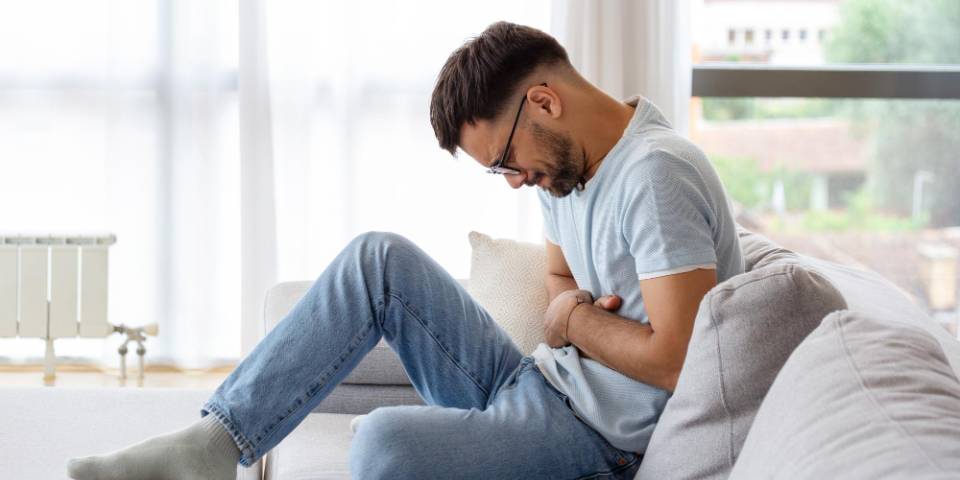
- December 6, 2023
- Dr. Vikrant Kale
- 0 Comments
- Latest Blogs
Understanding Chronic Muscular Abdominal Pain: Causes and Symptoms
Chronic muscular abdominal pain, also known as chronic abdominal wall pain, is a common condition that can cause significant discomfort and interfere with daily activities. It is estimated to affect up to 15% of the population, and women are more likely to experience it than men. In this insightful blog, Dr. Vikrant Kale, a seasoned gastroenterologist in Pune, Maharashtra, unravels the unknown surrounding the causes and symptoms of this persistent discomfort.
What is chronic muscular abdominal pain?
Chronic muscular abdominal pain is pain that originates in the muscles of the abdominal wall. It is typically characterized by a dull, aching pain that is localized to one or more specific areas of the abdomen. The pain may be persistent or intermittent, and it may worsen with movement or activity.
What causes chronic muscular abdominal pain?
There are a number of possible causes of chronic muscular abdominal pain, including:
- Muscle strain or injury: This is a common cause of chronic abdominal pain. Muscle strains can appear from overuse, repetitive activities, or sudden trauma to the abdomen.
- Fibromyalgia: This is a chronic condition that causes widespread pain and tenderness in the muscles, tendons, and ligaments. Fibromyalgia can also cause other signs, such as fatigue, sleep problems, and cognitive difficulties.
- Endometriosis: This is a condition in which tissue that normally lines the uterus grows outside of the uterus. Endometriosis can cause pain in the abdomen, pelvis, and back, as well as other symptoms such as heavy bleeding, irregular periods, and infertility.
- Digestive Disorders: Gastrointestinal problems, such as irritable bowel syndrome (IBS) or inflammatory bowel disease (IBD), are common culprits behind chronic abdominal pain. Dr. Kale provides a comprehensive overview of how these conditions affect the abdominal muscles and explores integrated approaches for relieving discomfort.
- Structural Abnormalities: Structural abnormalities, including hernias or muscle tears, may lead to chronic abdominal pain. Dr. Vikrant Kale discusses the importance of diagnostic imaging techniques to identify and address these underlying issues.
What are the symptoms of chronic muscular abdominal pain?
The most common sign of chronic muscular abdominal pain is dull, aching pain that is localized to one or more specific areas of the abdomen. The pain may be constant or intermittent, and it may worsen with activity or movement. Other signs of chronic muscular abdominal pain may include:
- Bloating
- Constipation
- Diarrhea
- Nausea
- Vomiting
- Fatigue
- Sleep problems
How is chronic muscular abdominal pain diagnosed?
There is no specific test to diagnose chronic muscular abdominal pain. Diagnosis is typically based on a medical history, physical examination, and ruling out other potential causes of the pain. In some cases, imaging studies such as an ultrasound or CT scan may be used to rule out other causes of the pain.
How is chronic muscular abdominal pain treated?
Treatment for chronic muscular abdominal pain will rely on the underlying cause of the pain. Some common treatment options include:
- Rest and pain medication: This is the first line of treatment for most cases of chronic muscular abdominal pain. Rest will give the muscles time to heal, and pain medication can help to relieve pain and inflammation.
- Physical therapy: Physical therapy can help to maintain the abdominal muscles and improve flexibility. This can help to relieve pain and prevent future injuries.
- Massage therapy: Massage therapy can assist in relaxing the muscles and easing pain.
- Biofeedback Therapy: Biofeedback is a technique that teaches patients how to control their body’s functions, such as heart rate and muscle tension. This can be helpful in managing pain and other symptoms.
- In some cases, medication such as muscle relaxants or antidepressants may be prescribed to help manage the pain.
Living with Chronic Muscular Abdominal Pain:
Chronic muscular abdominal pain can be a challenging condition to live with. However, there are a number of things that individuals can do to manage their pain and improve their quality of life. These include:
- Staying active: Regular exercise can help to strengthen the abdominal muscles and ease pain. However, it is necessary to start slowly and gradually increase the intensity of activity.
- Maintaining a healthy lifestyle: Eating a healthy diet, getting enough sleep, and managing stress can all help to enhance overall health and well-being.
- Joining a support group: Joining a support group can provide people with an opportunity to connect with others who understand what they are going through.
If you are experiencing chronic muscular abdominal pain, it is important to consult with the best gastroenterologist in Pune, Maharashtra, to get a diagnosis and discuss treatment options. With proper treatment and management, many people with chronic muscular abdominal pain can find relief and improve their quality of life.

